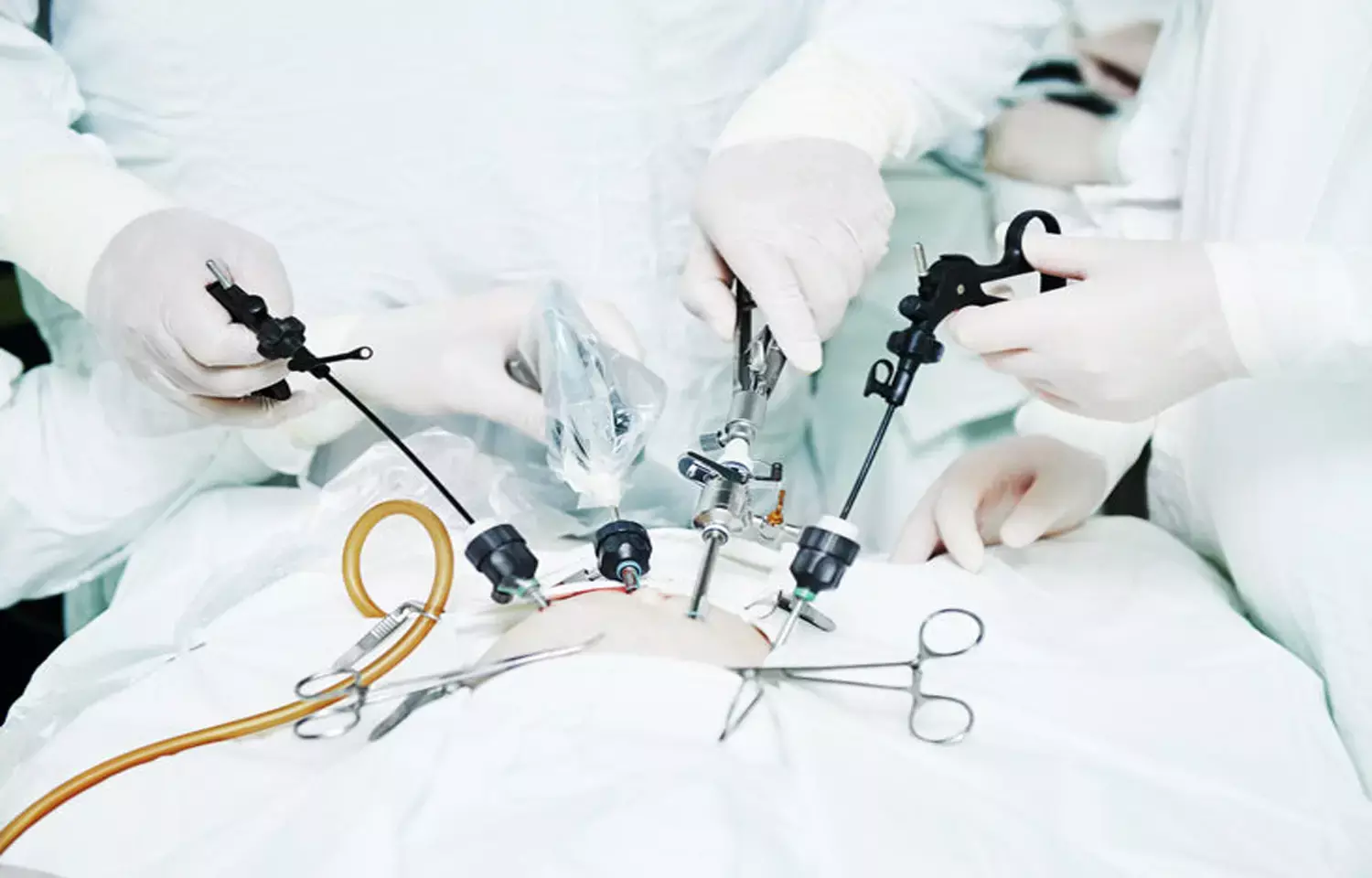- Home
- Medical news & Guidelines
- Anesthesiology
- Cardiology and CTVS
- Critical Care
- Dentistry
- Dermatology
- Diabetes and Endocrinology
- ENT
- Gastroenterology
- Medicine
- Nephrology
- Neurology
- Obstretics-Gynaecology
- Oncology
- Ophthalmology
- Orthopaedics
- Pediatrics-Neonatology
- Psychiatry
- Pulmonology
- Radiology
- Surgery
- Urology
- Laboratory Medicine
- Diet
- Nursing
- Paramedical
- Physiotherapy
- Health news
- Fact Check
- Bone Health Fact Check
- Brain Health Fact Check
- Cancer Related Fact Check
- Child Care Fact Check
- Dental and oral health fact check
- Diabetes and metabolic health fact check
- Diet and Nutrition Fact Check
- Eye and ENT Care Fact Check
- Fitness fact check
- Gut health fact check
- Heart health fact check
- Kidney health fact check
- Medical education fact check
- Men's health fact check
- Respiratory fact check
- Skin and hair care fact check
- Vaccine and Immunization fact check
- Women's health fact check
- AYUSH
- State News
- Andaman and Nicobar Islands
- Andhra Pradesh
- Arunachal Pradesh
- Assam
- Bihar
- Chandigarh
- Chattisgarh
- Dadra and Nagar Haveli
- Daman and Diu
- Delhi
- Goa
- Gujarat
- Haryana
- Himachal Pradesh
- Jammu & Kashmir
- Jharkhand
- Karnataka
- Kerala
- Ladakh
- Lakshadweep
- Madhya Pradesh
- Maharashtra
- Manipur
- Meghalaya
- Mizoram
- Nagaland
- Odisha
- Puducherry
- Punjab
- Rajasthan
- Sikkim
- Tamil Nadu
- Telangana
- Tripura
- Uttar Pradesh
- Uttrakhand
- West Bengal
- Medical Education
- Industry
Laparoscopic versus open distal gastrectomy leads to better oncological outcomes in gastric cancer: Study

Netherlands: A team of researchers led by Nadia A.G. Hakkenbrak conducted a study that showed that less perioperative blood loss, faster patient recovery, and fewer complications are all advantages of laparoscopic distal gastrectomy (LDG). Furthermore, LDG is oncologically appropriate in terms of lymph node yield, resection adequacy, and survival. The findings of this study were published in the Surgery journal.
For gastric cancer, LDG with sufficient lymph node dissection is becoming more popular across the world. This surgical method has been the subject of several randomized studies. The goal of this meta-analysis is to provide an updated summary of the short-term, long-term, and oncological outcomes of laparoscopic distal gastrectomy versus open distal gastrectomy (ODG).
A thorough search of the Medline, Embase, and Cochrane databases was done for this investigation, which included randomized clinical studies comparing LDG versus open distal gastrectomy. Surgical results, postoperative recovery, complications, mortality, appropriateness of resection, and long-term survival were all evaluated in the studies.
The results of this study stated as follow:
1. There were 2,347 papers found in total, with 22 randomized clinical trials chosen for study.
2. The LDG procedure resulted in much-reduced blood loss and longer operating duration.
3. Patients who received LDG had a quicker recovery of bowel function, a shorter hospital stay, and fewer problems, with no difference in death rates.
4. Both groups had equivalent lymph node yield and resection margins.
5. Because of the wide range of follow-up durations, survival results could not be assessed.
In conclusion, laparoscopic surgical procedures for distal gastrectomy in gastric cancer patients are gaining popularity across the world, although acceptance and implementation remain slow. According to the findings of this meta-analysis, laparoscopic distal gastrectomy is oncologically appropriate in terms of resection quality, lymph node yield, and survival. Patients who get LDG may have a lower risk of surgical complications and a shorter recovery time. The findings of this study support the use of LDG in centers with sufficient expertise and experience.
Reference:
Nadia A.G. Hakkenbrak, Elise P. Jansma, N. van der Wielen, Donald L. van der Peet, Jennifer Straatman, Laparoscopic versus open distal gastrectomy for gastric cancer: A systematic review and meta-analysis, Surgery, 2022, https://doi.org/10.1016/j.surg.2021.11.035.
Medical Dialogues consists of a team of passionate medical/scientific writers, led by doctors and healthcare researchers. Our team efforts to bring you updated and timely news about the important happenings of the medical and healthcare sector. Our editorial team can be reached at editorial@medicaldialogues.in.
Dr Kamal Kant Kohli-MBBS, DTCD- a chest specialist with more than 30 years of practice and a flair for writing clinical articles, Dr Kamal Kant Kohli joined Medical Dialogues as a Chief Editor of Medical News. Besides writing articles, as an editor, he proofreads and verifies all the medical content published on Medical Dialogues including those coming from journals, studies,medical conferences,guidelines etc. Email: drkohli@medicaldialogues.in. Contact no. 011-43720751


